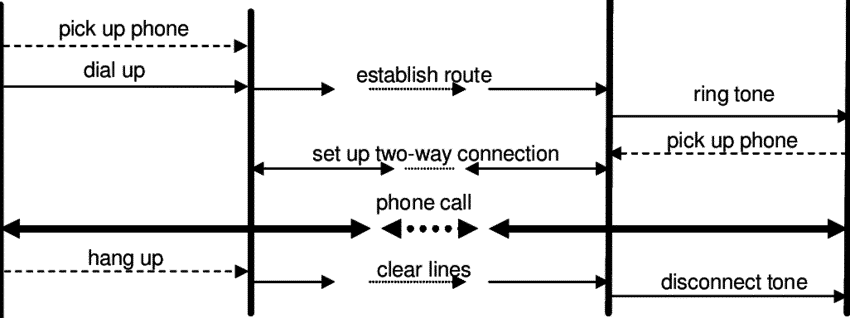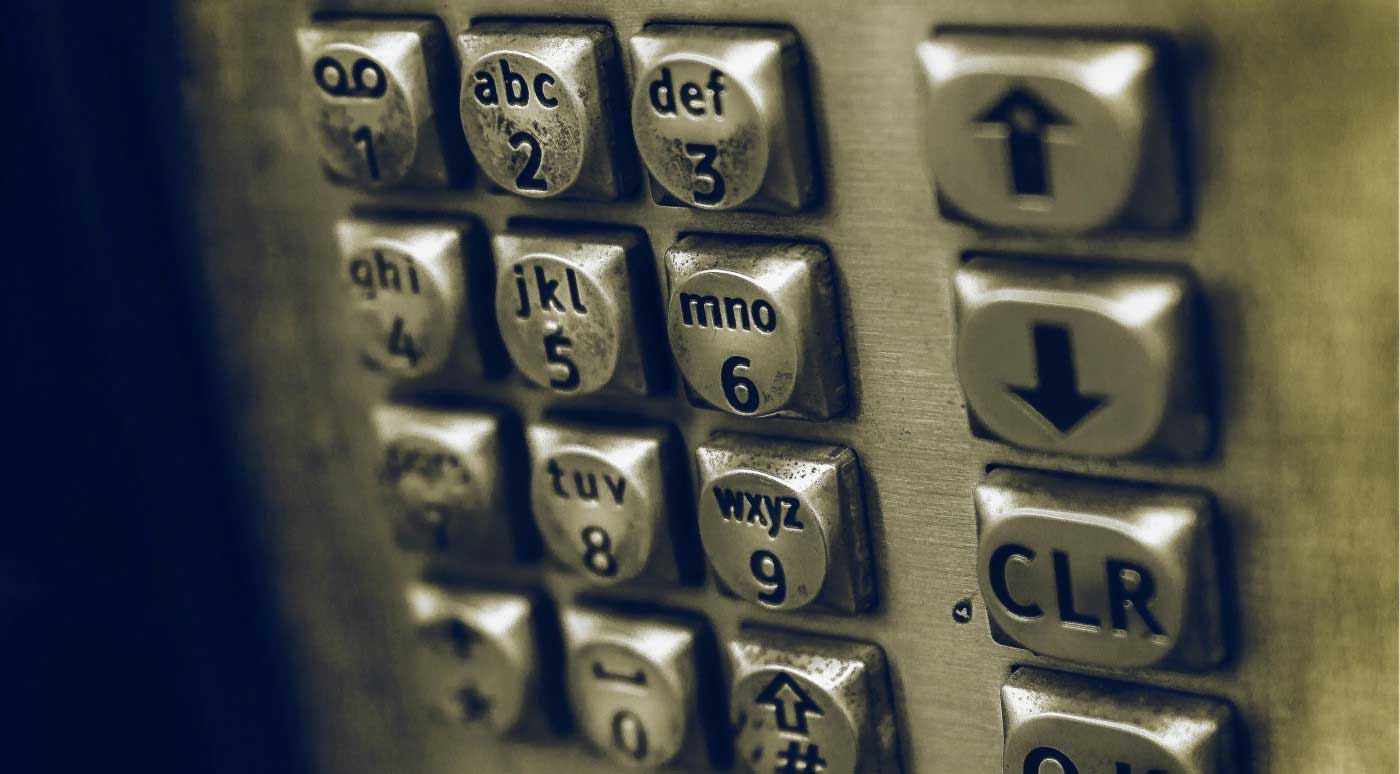The basics of making a telephone call
The process of making a telephone call. src
Connectivity technologies have come a long way over the last century, but even their earliest, crudest models can still play a vital role in today’s world. Telephones still hold some advantages over mobile phones, and many homes have retained their landline phones to get the best of both worlds.
If you’re thinking of dusting off your arcane landline phone to put it back to use, you’re not alone. In this piece, we’ll give you a refresher of what using a telephone is like.
First, let’s examine the basics of making a telephone call. The process of making a telephone call begins when you pick up the phone to dial a number, and ends when the horn is hung up on either end of the connection.
The number you dial is used by the home exchange (your telephone exchange center) to determine the destination, and then the home exchange finds a route to connect to the destination exchange, possibly through various intermediary steps.
When contact is successfully established, the destination exchange activates the ringer of the destination terminal (phone). The telephone conversation then begins when the called party picks the call.
Recording a telephone call in Australia
Australia has a raft of telephone call recording including those on the federal, state, and local levels. These laws may seem ambiguous with no clear boundaries in some jurisdictions. This can confound businesses and individuals looking to record telephone calls for business-related or personal reasons.
Perhaps the most definitive clause in the country’s call recording policy is that of the Telecommunications (Interception) Act of 1979, which “prohibits a person from listening to or recording, by any means, of a communication in its passage over a telecommunications system without the knowledge of the person making the communication.”
However, some states and territories may allow people to get away with recording telephone conversations without the other party’s consent. The laws are also strict on the sharing or publishing of telephone call recordings without the consent of the other party.
These laws inevitably determine the availability of any call recording functionality on telephones. Facilities for recording telephone conversations are not a standard component of landline phones. You’d have to order for it to be installed separately on your telephone by a company offering call recording services. Once you’re able to get the telephony team to configure your telephone, you can then start recording calls.
Pros and cons of a telephone call
Using telephones to make calls has many advantages like more robust signals and clearer voice quality, but it also has drawbacks like limitations to movement and lack of many call-related functions found in mobile phones. src
Pros:
- Ease of use:
With its simple design, straightforward dials, and minimal range of buttons, a telephone is simple to operate. That makes it a great option for kids and seniors at home to keep in touch easily with the outside world. - Reliable connection:
Landline signals are transmitted through a network of cables buried deep underground. Signals carried by undisturbed physical cables are usually clearer and more reliable than those transmitted through airwaves. - Clearer sound reception:
The stronger signals of telephone calls enable better voice quality compared to those of mobile phone calls. You won’t have to repeat yourself on a telephone call as many times as you might have to on a mobile phone. - Emergency calls:
Since they’re less susceptible to signal issues, telephone calls are the best option for emergencies. Also, since the landline is registered to your home address, it’s easier for emergency response teams to trace your location when you call with a telephone.
Cons:
- Wiring woes:
Although wireless telephone models have been in existence for quite some time, wired models are still ubiquitous in Australian homes. But besides probably having to deal with the clutter of the wire, you’ll also have to deal with connection issues if the wires break or develop some faults. - Lack of portability:
Another downside of using a telephone is that you need to make your way down to a certain part of the house every time to make or receive a call. But one way around this drawback can be to install telephone extensions to make calls from different rooms – but even then, you can’t make calls on-the-go outside your home, as you would with your mobile phone. - No way to store contacts: You’ll have to use a rolodex or a diary to keep a list of your contacts when using most telephones to make calls. With mobile phones, your contact list is always a keypress or two away.
Summing up
If you have kids and seniors at home, they’ll be better off with a telephone than a cell phone. Telephones are less complex and work with stronger signals. Telephones are also ideal for businesses because of their crisp sound reception and reliable signals. Although telephones are bereft of various functionality available on mobile phones, they still offer many important tools like those of call recording and internet connection.

